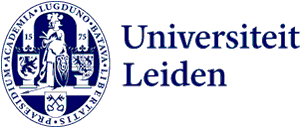28 search results for “algorithms” in the Public website
-
Algorithms for quantum software
Top scientists of three Dutch universities are working on software and systems for quantum computers. Researchers of the Leiden Institute of Advanced Computer Science (LIACS) and the Leiden Institute of Physics (LION) are developing new algorithms to make those super computers work. The coming years,…
-
Accountable Artificial Intelligence: Holding Algorithms to Account
Artificial intelligence algorithms govern in subtle, yet fundamental ways, the way we live and are transforming our societies. The promise of efficient, low‐cost or ‘neutral’ solutions harnessing the potential of big data has led public bodies to adopt algorithmic systems in the provision of public…
-
Algorithms for the description of molecular sequences
Promotor: J.N. Kok, P.E. Slagboom Co-promotor: J.F.J. Laros
-
Modular curves, Arakelov theory, algorithmic applications
Promotor: S.J. Edixhoven, Co-promotor: R.S. de Jong
-
Algorithmic tools for data-oriented law enforcement
Promotor: J.N. Kok, Co-promotor: W.A. Kosters
-
Novel detectors and algorithms for electron nano-crystallography
Promotor: Prof.dr. J.P. Abrahams, Prof.dr. M. van Heel
-
Algorithms for analyzing and mining real-world graphs
Promotor: Prof.dr. J.N. Kok, Co-Promotor: W.A. Kosters
-
Algorithms help improve building design
Modern optimization algorithms offer solutions for architectural decisions like spatial, structural and energy efficiency. A young computer scientist from Leiden University co-authored a paper that won the Best Paper Award at a leading conference in Krakow during the summer.
-
Building with algorithms: looking for the optimal design
How can computers help design optimal buildings? PhD student Koen van der Blom makes algorithms that take into account all kinds of different architectural requirements, in order to reach the best compromise. And that is quite difficult: 'Algorithms do not automatically understand that a building that…
-
Satellite data and algorithms reveal which ships emit excessive nitrogen
Ships are still emitting too much nitrogen oxide. Till now it has been impossible to measure this at sea, but that is set to change. Solomiia Kurchaba combined satellite data and developed algorithms to identify which ships are emitting too much. Kurchaba received her PhD on 11 June.
-
Algorithms descend into our sewers to improve inspections
They never cross our minds until, that is, they become damaged and then they’re a huge problem: our sewers. Their maintenance could be much faster and more accurate, PhD candidate Dirk Meijer has discovered. Algorithms are also proving to be a godsend deep underground.
-
Parallel Worlds
Addressing the core novel objective of scalably assessing the impact of possible interventions through counterfactual prediction based on spatio-temporal data.
-
Tools for public authorities to be more transparent about algorithmic profiling
Public authorities fail to inform citizens, or inform them too little or too late, about the use of algorithmic profiling in administrative decisions. This is clear from research conducted by Anne Meuwese and Fatma Çapkurt on the legally and practically responsible use of profiling algorithms.
-
Deterministic equation solving over finite fields
Promotor: H.W. Lenstra
-
Data structures for quantum circuit verification and how to compare them
Quantum computers are a proposed fundamentally new type of computer. They aim to perform some computations much faster than previously possible by exploiting phenomena at the quantum scale, called superposition and entanglement.
-
 Marcello Bonsangue
Marcello BonsangueFaculty of Science
-
Massively collaborative machine learning
Promotor: J. N. Kok, Co-promotor: A. J. Knobbe
-
Special edition Information Polity
In this special edition of Information Polity there is a focus on the transparency challenges of using algorithms in government in decision-making procedures at the macro-, meso-, and micro-levels.
-
DNA expressions - A formal notation for DNA
Promotores: J.N. Kok, H.J. Hoogeboom
-
 Frank Takes
Frank TakesFaculty of Science
-
 Justin Lian
Justin LianFaculty of Science
-
 Friso Selten
Friso SeltenFaculty of Governance and Global Affairs
-
 Matthijs van Leeuwen
Matthijs van LeeuwenFaculty of Science
-
New paradigm for visual recognition
Leiden University computer scientists Yu Liu, Yanming Guo and Michael Lew are a step closer to their ultimate goal: search engines with visual recognition. Their publication of a new algorithm for fusing multi-scale deep learning representations has been received with great enthusiasm. No other algorithm…
-
 Jan van Rijn
Jan van RijnFaculty of Science
-
New scanning method turns objects inside out at high speed
What if you could watch a CT scan live, instead of analysing the images afterwards? If it is up to the Leiden mathematician Jan-Willem Buurlage, that will soon be a reality. He is developing methods to make the algorithms behind 3D scans faster. Quite a challenge: ‘Just like mathematicians, computers…
-
Making problem solving more efficient
The recently promoted Hao Wang from the Leiden Institute of Advanced Computer Science teaches computer programmes how to solve real-world problems. His goal is to make the process of problem-solving more efficient. On 1 November, he obtained his doctorate with the predicate cum laude. ‘I hope to solve…
-
‘Data science has crept into the faculties’ DNA’
From 14 to 29 PhD candidates, seven actively involved faculties and, above all, lots of innovative interdisciplinary research, all with data science as the common denominator. The university’s Data Science Research Programme (DSO) has proven so successful that after five years on a start-up grant it…
